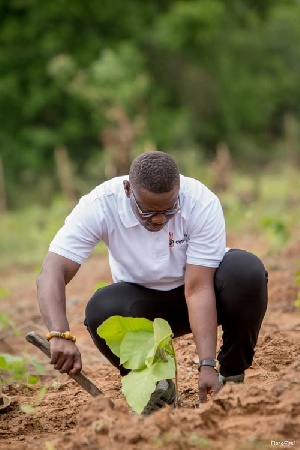Plant preservation in the present age is a must, because plants comprise a life form that is pivotal to the sustenance of human life on earth in a number of ways. They serve as a major source of food, clothing and shelter, as well as different kinds of medicines and also, add to the quality of air by producing oxygen, which mammals including; humans cannot live without.
Plants also, especially in the form of forests, house different kinds of animal life, thus providing the right balance in biodiversity, which is a basic requirement for the preservation of life.
With the progression of modernisation however, activities such as different kinds of construction work such as roads, factories, houses and the general expansion of towns and cities, have led to the extensive depletion of forests and in effect, the mass destruction of plants.
Unfortunately, this depletion in most cases, do not go with any plans of conservation, which in effect means the destroyed forests or plants were not replaced, resulting in a gradual loss, and a gradual move towards an unhealthy environment or planet, with regards to the sustainability of life, including; that of humans.
Professor (Prof) Godwin Aflakpui, a former chief Scientist of the Council for Industrial and Scientific Research, said whilst heavy construction, especially in the city was unavoidable and needed, it was of dire importance, that the conservation of plants was given key priority.
Prof Aflakpui, told the Ghana News Agency in an interview, after his lecture on the topic, “Plants and Human Development,” at the Ghana Academy of Arts and Sciences annual lecture series, that considering the immense benefits of plants to humans, especially in critical areas of survival, plant conservation was of crucial importance, amidst the various activities that threatened plant life, in the present era of rapid development.
“To say that human development is underpinned by plants is an understatement, looking at the roles that plants play in the world’s food supply,” he said.
Prof. Aflakpui noted that whilst 75 percent of the world’s food supply was based on seven major food crops, nearly a fourth of all prescription drugs came directly from plants and said it was also worth noting that four out of five people around the world, relied on plants for primary healthcare, with green plants being the source of many orthodox medicines. He said among other things, plants shaped weather patterns, provided flood defence and regulated the water cycle and in essence, were the back-bone of life on earth, and an essential resource for human well-being.
Prof. Aflakpui said a strong awareness on the need for the preservation of plants, had to be created as it would imbue the right attitude into the younger generations and in effect, preserve life and the entire planet.
He said it was of prime need for it to be well understood, that it was not possible to replace the value of plants with construction works, because the end results would be unbearable and destructive in a manner that would not be worth the cause.
General News of Monday, 15 October 2018
Source: ghananewsagency.com













